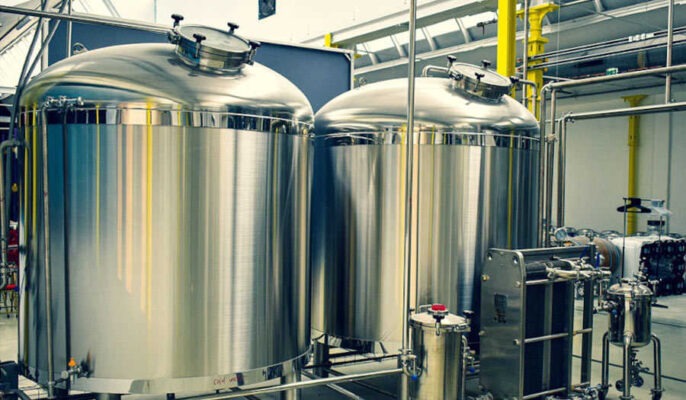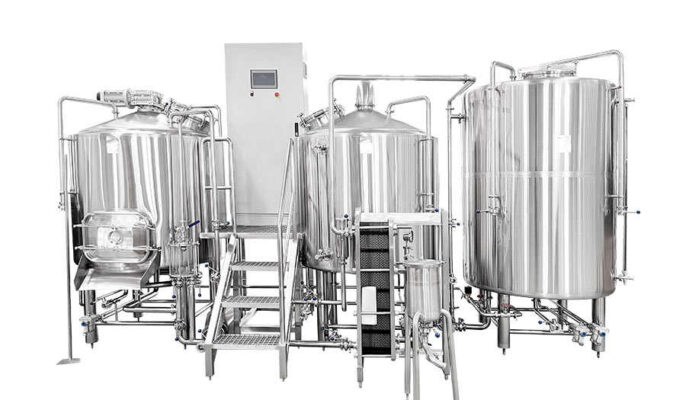At the heart of most breweries and distilleries is the steam boiler. The steam boiler is a key component in the brewing process. Brewery boilers must proper maintenance and monitoring to maintain peak performance, and you need to know how to fix common boiler problems. Here are some tips for brewery boiler maintenance.
Choosing the right steam boiler for your brewery
When a new brewery or distillery starts buying equipment, they often have a brewery equipment supplier install the boiler as well. But don’t make the mistake of assuming that any boiler will meet your long-term requirements. Since breweries and distilleries often operate around the clock, selecting, tuning, and designing a proper boiler will avoid premature and unnecessary downtime of the system.

Create a maintenance plan
Lack of regular maintenance is one of the most common causes of boiler problems. When your boiler is running, parts wear out. So catching minor problems while they’re still small allows you to prevent more serious problems that could lead to injury or catastrophic failure. If your boiler is not getting the maintenance it needs, it can have devastating effects including dangerous and even deadly boiler explosions!
Common boiler problems in breweries and distilleries include:
- Material through leaking or improper feeding
- Boiler leakage
- Boiler fire
- Improper setting
A major boiler failure is costly and dangerous and can bring brewery operations to a standstill. This can be avoided by scheduling routine maintenance on brewery boilers throughout the year and catching problems in time.
Check trap
In boilers, it is very common for some steam to condense as the insulation around the steam pipes is not 100% effective. The boiler system must have a way to separate the condensate from the steam to maintain pressure and keep the steam flowing down the pipes. A steam trap completes the separation.
Sometimes a steam trap will leak and allow steam to enter the condensate return line. When this happens, the steam system shorts out. Boilers have to produce more steam to meet the same demand. This overwork increases fuel consumption, water consumption, and equipment wear and tear.
Blowdown every week
In boilers, minerals in the water can form scale on the boiler surfaces. This buildup impedes heat transfer, impedes water flow, causes inefficiencies and increases wear. Helps prevent these problems by inhibiting scale buildup. The process by which water is drained from the boiler to limit the concentration of minerals. Water that is added to boilers to replace blowdown water has a lower mineral concentration to help prevent scaling.
Detect pressure loss
Due to their closed design and the expansion that occurs when water turns into steam, boilers are under a lot of pressure. A loss of pressure usually indicates a leak somewhere in the boiler system. You can check for pressure loss by monitoring the boiler’s pressure gauge — the needle should be in the green range, with a red range indicating an emergency.
If your boiler system is experiencing pressure loss, you need to check for valves that are leaking . You’ll also want to check the outside of the tank, as this is another common area prone to leaks.
Measuring Instrument Performance
To watch the boiler system, it is necessary to ensure that the instrument can work . If the old gauge is reading low, but the system appears to be functioning , the gauge may be outdated. Most modern boiler systems output lower pressures than traditional systems, and the pressure gauge may need to be configured for the new system.
Keep maintenance records
If you don’t track maintenance, it’s easy to let maintenance work fall by the wayside. To avoid missing maintenance needs, keep a logbook with details of maintenance performed on your boiler. Logs can be used to track these demands and the required intervals between maintenance appointments.

Boiler Maintenance Improves Productivity
Designing a steam boiler system to exact specifications and knowing the proper oxygen and combustion settings can maximize the efficiency of the system. This often means the difference between producing 30 batches per day versus only 10. the
If the boiler is not running , you may get the incorrect temperature, which will not only lengthen the cooking time but also give you an unpredictable end product.
- Bad drinks
- Bitter
- Reduce carbonization
- Rough texture
Looking for help with brewery boilers
The key thing to remember about boiler disposal is that help is always available. Getting professional help with maintenance and having your brewery boiler water treated by a reputable water treatment company can cut the need for costly repairs and keep your boiler in tip-top shape.
Of course, Micet Group can also meet your requirements, and we can provide tailor-made services according to your unique needs. Design the ideal boiler system to maximize efficiency and cut downtime.




